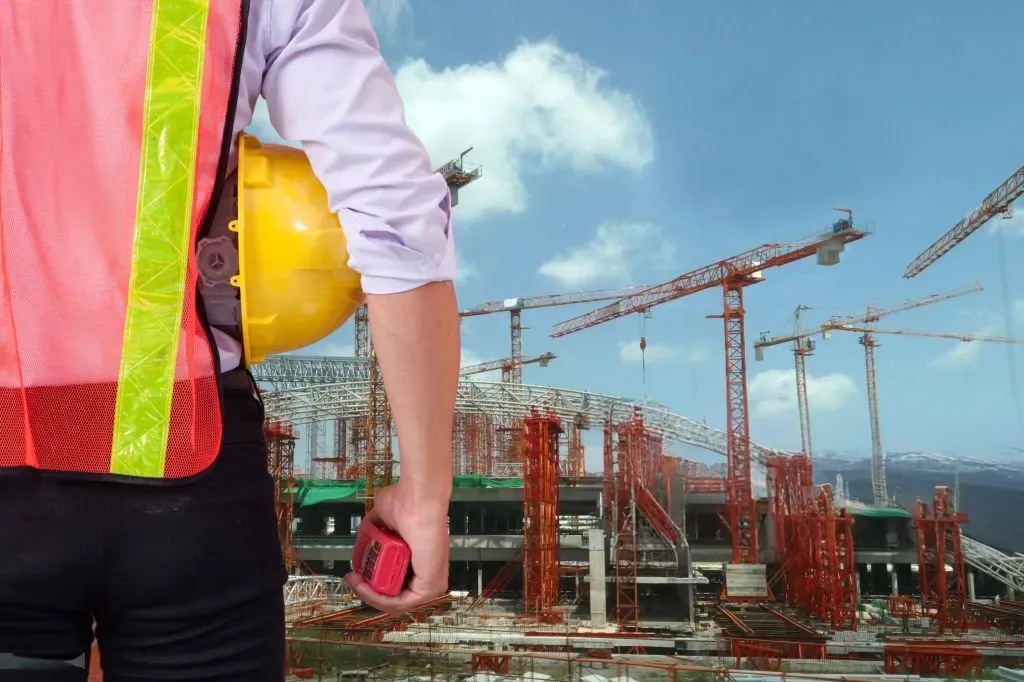Introduction to Epoxy Structural Bolts
Epoxy structural bolts are revolutionizing the construction and engineering sectors by offering superior load-bearing capacity, exceptional resistance to environmental stress, and long-term durability. These bolts, embedded in concrete or other materials with high-strength epoxy adhesives, are ideal for anchoring applications in high-stress environments.
Epoxy structural bolts are not only used in traditional construction settings but are now finding diverse applications in modern engineering, thanks to their flexibility, strength, and ability to bond securely to multiple substrates.
What Are Epoxy Structural Bolts?
Epoxy structural bolts consist of threaded rods or bolts that are secured into pre-drilled holes using high-performance epoxy adhesives. These bolts are designed to provide exceptional mechanical strength and can endure a variety of loads, making them ideal for structural reinforcement and heavy-duty applications.
The epoxy used in these installations offers:
- Corrosion resistance, extending the lifespan of the bolts.
- High tensile strength, ensuring the bolts remain secure under high loads.
- Chemical resistance, allowing them to perform effectively even in chemically aggressive environments.
Innovative Applications in Modern Engineering
1. Infrastructure Rehabilitation and Retrofitting
As urban infrastructure ages, there is an increasing need to retrofit bridges, highways, tunnels, and buildings. Epoxy structural bolts play a crucial role in restoring structural integrity by anchoring new components to existing structures. Their ability to bond effectively with concrete ensures long-term stability, making them indispensable in rehabilitation projects.
SEO Keyphrase: epoxy structural bolts for infrastructure retrofitting
2. Seismic Reinforcement
In earthquake-prone regions, epoxy structural bolts are used to improve the seismic resilience of buildings and structures. These bolts, combined with flexible epoxy, allow for energy absorption during seismic events, reducing structural damage. Epoxy bolts are often used in anchoring shear walls, column jackets, and foundation systems that require dynamic load handling.
SEO Keyphrase: epoxy structural bolts for seismic reinforcement
3. Offshore and Marine Structures
Due to their excellent corrosion resistance, epoxy structural bolts are increasingly utilized in offshore platforms, coastal defenses, and marine applications. Their ability to withstand harsh saltwater environments ensures that these structures remain securely anchored for extended periods, even under extreme weather conditions.
SEO Keyphrase: marine and offshore epoxy structural bolts
4. Wind Turbines and Renewable Energy Structures
The renewable energy industry, especially wind turbine installations, relies on epoxy structural bolts to secure turbine towers to concrete foundations. These bolts offer the perfect combination of strength and durability, necessary to support the weight and dynamic forces generated by wind turbines.
SEO Keyphrase: epoxy structural bolts in renewable energy
5. Skyscrapers and High-Rise Buildings
In high-rise construction, epoxy structural bolts are employed to anchor steel frameworks into concrete slabs or walls. Their superior load-bearing properties ensure stability and safety in skyscrapers, where structural integrity is critical due to the extreme loads and wind forces acting on the building.
SEO Keyphrase: epoxy structural bolts for high-rise construction
6. Railway and Transportation Infrastructure
The railway industry benefits from epoxy structural bolts for securing rails, bridge supports, and overhead systems. These bolts can endure the high dynamic loads generated by high-speed trains, ensuring safety and reliability in critical transport systems.
SEO Keyphrase: epoxy structural bolts in transportation infrastructure
7. Tunneling and Underground Construction
Epoxy structural bolts are widely used in tunnel linings and underground construction projects. Their ability to bond with concrete in challenging conditions, such as those found in underground environments, makes them essential for securing support beams, ventilation systems, and other critical tunnel components.
SEO Keyphrase: epoxy structural bolts for underground construction
Benefits of Epoxy Structural Bolts in Modern Engineering
Epoxy structural bolts provide various advantages that make them an attractive choice for modern construction and engineering projects:
- High Load Capacity: Epoxy structural bolts can withstand heavy loads and stresses, making them ideal for high-performance applications.
- Corrosion Resistance: The epoxy adhesive protects the bolt from corrosive elements, which is especially important in harsh environments such as marine and chemical plants.
- Flexibility: Epoxy-based systems can adapt to a wide range of environmental conditions, ensuring long-term durability and performance.
- Easy Installation: Epoxy bolts are relatively simple to install and can be used in both new construction and retrofit projects without requiring extensive modifications to the existing structure.
- Reduced Maintenance: Due to their long-term resistance to environmental degradation, epoxy structural bolts require less frequent maintenance, saving time and costs over the life of the structure.
Conclusion
Epoxy structural bolts are leading the charge in modern engineering, offering enhanced performance in a wide variety of applications. From infrastructure rehabilitation to wind energy, these bolts provide an essential solution for projects requiring high durability, strength, and adaptability. Their innovative use is helping to shape the future of construction and engineering, making structures safer, more resilient, and capable of withstanding the challenges of the modern world.

